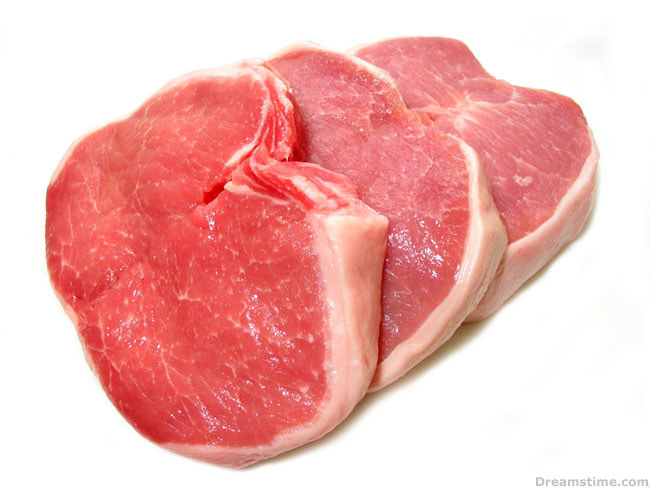The Atkins Paradox: What Diet Studies Don't Reveal

Get the world’s most fascinating discoveries delivered straight to your inbox.
You are now subscribed
Your newsletter sign-up was successful
Want to add more newsletters?

Delivered Daily
Daily Newsletter
Sign up for the latest discoveries, groundbreaking research and fascinating breakthroughs that impact you and the wider world direct to your inbox.

Once a week
Life's Little Mysteries
Feed your curiosity with an exclusive mystery every week, solved with science and delivered direct to your inbox before it's seen anywhere else.

Once a week
How It Works
Sign up to our free science & technology newsletter for your weekly fix of fascinating articles, quick quizzes, amazing images, and more

Delivered daily
Space.com Newsletter
Breaking space news, the latest updates on rocket launches, skywatching events and more!

Once a month
Watch This Space
Sign up to our monthly entertainment newsletter to keep up with all our coverage of the latest sci-fi and space movies, tv shows, games and books.

Once a week
Night Sky This Week
Discover this week's must-see night sky events, moon phases, and stunning astrophotos. Sign up for our skywatching newsletter and explore the universe with us!
Join the club
Get full access to premium articles, exclusive features and a growing list of member rewards.
It's hard to keep a bad diet down. Doctors at Stanford University Medical School published a year-long study last month in the Journal of the American Medical Association comparing four popular diets, from low-carb to low-fat. Once again, the Atkins diet won.
The news media loves good irony and thus provided pork rind lovers with more ammunition to combat all those wimpy salad eaters at work. The study calls to mind the words of the late Robert Atkins, the originator of the Atkins diet, who wondered sarcastically at what point he could say, "I told you so."
Alas, Dr. Atkins, not yet.
Read the fine print
The Stanford study placed 311 overweight, premenopausal women with similar body statistics on one of four diets: Atkins (very low-carb), the Zone (low-carb), the LEARN diet (low-fat, national guidelines) and the Ornish diet (very low-fat). At six months, the 70-some women on the Atkins diet were way ahead of the other women in weight loss. This confirmed what many studies have shown before: People on Atkins lose weight quickly.
At 12 months, Atkins was still the winner, the authors said. The average weight loss was about 10 pounds. The Ornish diet resulted in a loss of about 5 pounds; the Zone diet came in last with a 3.5-pound loss. But the paper's abstract wasn't true to the actual results.
The Atkins and Ornish data have overlapping confidence intervals. This is a measure of statistical strength given sample size and other factors. The study implies that, with 95-percent confidence, the true weight loss could be as low as 6.8 pounds for the Atkins group and as high as 8.2 pounds for the Ornish group.
Get the world’s most fascinating discoveries delivered straight to your inbox.
In fact, the Ornish dieters were closing the gap at 12 months as the Atkins dieters were gaining weight. This supports earlier studies suggesting that a low-fat lifestyle is better at keeping off weight in the long run.
Ornish strikes back
Dean Ornish, creator of the Ornish diet, can be ornery when his diet is attacked, and he rightfully pointed out that the Stanford study, like so many studies before it, didn't really test his diet. Ornish advises dieters to limit fat to only 10 percent of the energy intake. For a 2,000-calorie diet, that's only 200 calories or about 22 grams of fat per day.
The Stanford dieters didn't get to this level. After all, it's hard. Try being Italian on the Ornish diet when two tablespoons of olive oil contains 22 grams of fat.
So why not go with Atkins if you can loose weight and eat bacon? The reason, most doctors say, is because there is something perverse about the Atkins diet.
Consider the breakfast of a gentleman on the Atkins diet whom I encounter each morning on a commuter train eating an entire block of baloney right out of the package with one hand and washing it down with a diet Coke in his other hand. Between the salt, fat and artificial additives in the lunchmeat and soda, this simply can't be healthy.
Consider, too, the mountains of data associating heart disease and cancer with diets high in saturated fat, the kind of fat found in beef and pork. This is why the U.S. government, despite intense lobbying from the meat industries, recommends diets low in saturated fat. Some studies have shown that acidity from a high-animal-protein diet might cause osteoporosis, an interesting fact considering that Robert Atkins died as a result of a skull fracture from slipping on the ice.
Thousands of years of data
Most humans for the past several millennia have eaten a diet largely comprising grains, seeds and vegetables (that is, carbohydrates) with a little meat. Country by country, populations become obese when they adopt an American diet high in animal fat and simple sugars.
An animal-based diet is costly to the consumer and the Earth. Rice and beans are cheaper than meat; and millions of acres of more land would be needed to grow the corn to feed the animals to make the meat for the baloney-and-Diet Coke diet.
At his best, Robert Atkins preached against the evils of simple carbohydrates, the sugars found in processed foods and drinks. Studies have shown the link between these kinds of foods and weight gain. A healthy diet could be as simple as avoiding packaged foods and using meat as a condiment, as our ancestors did.
As millions of Americans exercising and dieting earnestly will attest, losing weight is very difficult. The best advice for the young is to try your best not to put on extra weight.
Christopher Wanjek is the author of the books "Bad Medicine" and "Food At Work." Got a question about Bad Medicine? Email Wanjek. If it's really bad, he just might answer it in a future column. Bad Medicine appears each Tuesday on LIveScience.
- New Diet Trick: Eat More Air
- Top 10 Good Foods Gone Bad
- The Biggest Popular Myths

Christopher Wanjek is a Live Science contributor and a health and science writer. He is the author of three science books: Spacefarers (2020), Food at Work (2005) and Bad Medicine (2003). His "Food at Work" book and project, concerning workers' health, safety and productivity, was commissioned by the U.N.'s International Labor Organization. For Live Science, Christopher covers public health, nutrition and biology, and he has written extensively for The Washington Post and Sky & Telescope among others, as well as for the NASA Goddard Space Flight Center, where he was a senior writer. Christopher holds a Master of Health degree from Harvard School of Public Health and a degree in journalism from Temple University.
 Live Science Plus
Live Science Plus










